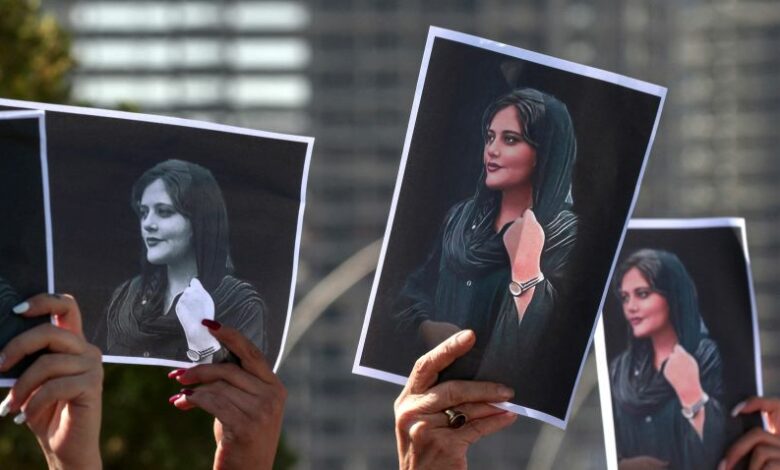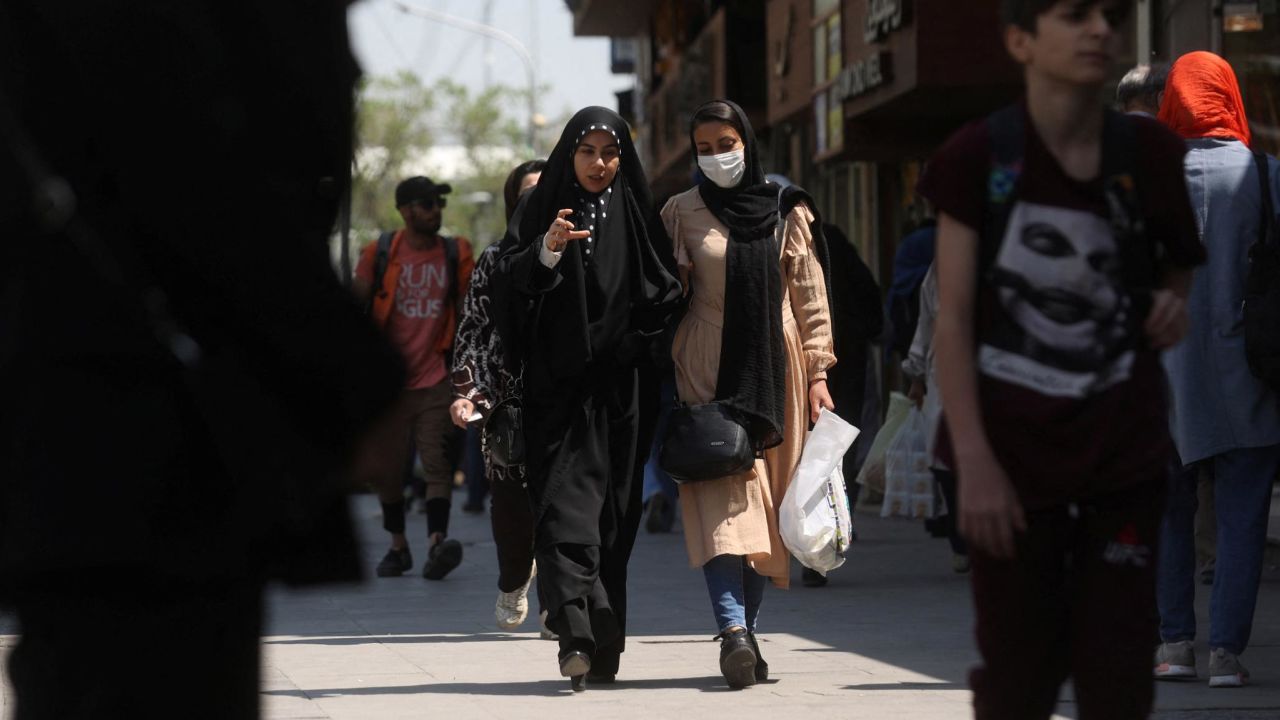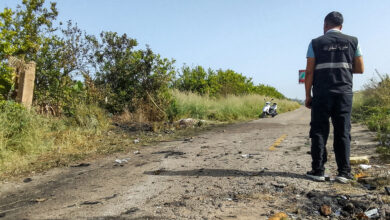
Amini, a 22-year-old Kurdish-Iranian woman, died last September after being detained by the regime’s infamous morality police, allegedly for not abiding by the country’s conservative dress code.
The so-called “hijab bill” will be enacted for a three-year trial period. It sets out various regulations around the wearing of clothing, which if violated can carry up to 10 years in prison.
Women not wearing the hijab properly in public and men who wear “revealing clothing that shows parts of the body lower than the chest or above the ankles,” would receive fines that gradually increase after repeated offenses, the bill says.
The bill also outlines penalties for celebrities and businesses who do not comply.
The Guardian Council, which oversees legislative matters in the Islamic Republic, still needs to approve the bill before it is implemented. All bills passed by the parliament must be reviewed and approved by the council to become law.

Parts of the bill are ambiguous. For example, the legislation fails to define what constitutes “semi-naked” in public – a crime punishable by “fourth degree” prison sentences. Under the Iranian penal code, a fourth-degree penalty carries a prison sentence between five to 10 years, and a fine between 180 million rials ($4,260) and 360 million rials ($8,520).
“Any person who appears naked or semi-naked in public, in public places or on roads, or appears in a way that is traditionally considered naked will be immediately arrested,” reads article 50 of the new law.
Those who collude with foreign media and governments to promote nudity, improper hijab, or improper dress, face up to 10 years in prison, the new bill adds. Those who are found guilty of ridiculing or insulting the hijab face a fine, in addition to a possible travel ban up to two years, the bill says.
The bill also targets “socially influential” people who if found guilty of breaking the bill could face the same fourth-degree jail sentence and could be asked to pay 1%-5% of their total assets as a fine.
The bill’s restrictions extend to mannequins and toys, which are banned from being portrayed with indecency.
The controversial bill has received condemnation from multiple human rights advocates. UN experts have said it could amount to “gender apartheid.”
The 70-article draft law includes a range of proposals, including the use of artificial intelligence to identify women in breach of the dress code.
A response to protests
Experts said the bill was a warning to Iranians that the regime would not back down from its stance on the hijab despite the mass demonstrations last year.
Amini’s death sparked nationwide protests that rocked the country, posing one of the biggest domestic threats to Iran’s ruling clerical regime in more than a decade.
Authorities responded violently to suppress the months-long movement, with widespread reports of deaths, disappearances and torture in custody.
It is “a clear response to the protests from September of last fall,” Sanam Vakil, director of the Middle East and North Africa program at the Chatham House think-tank in London, told CNN in August before the bill was introduced in parliament, adding that the establishment was attempting to “reassert authority over veiling and the requirements expected of women.”
According to Hossein Raeesi, an Iranian human rights lawyer and adjunct professor at Carleton University in Ottawa, Canada, some of the measures in the draft law have already been “unlawfully” exercised by Iranian security forces, including the recent closure of an insurance company in Tehran after some photos of female employees without the hijab circulated on social media.
With this bill, the government would “legalize illegal behavior” by those forces, Raeesi said.
Iran’s morality police had largely pulled back following last year’s protests, but in August, police spokesman General Saeed Montazerolmahdi said the morality police would resume notifying and then detaining women who are caught without the Islamic headscarf in public.
Escalating penalties
Wearing a hijab has been mandatory for women in Iran since 1983, after the country’s autocratic monarchy was overthrown in the Islamic Revolution of 1979.
The new law ramps up fines outlined under the current Islamic penal code, where those in breach of the dress code already face between 10 days to two months in prison, or a fine between 50,000 to 500,000 Iranian rials, what is today between $1.18 to $11.82.
Under the new law, business owners who do not enforce the hijab requirement will face steeper fines, potentially amounting to three months’ of their business profit, and face bans on leaving the country or participating in public or cyberactivity for up to two years.
The draft law would also mandate broader gender segregation in universities – common hotbeds of civilian protests – and other public spaces.
CNN’s Celine Alkhaldi and Nadeen Ebrahim contributed to this report.




